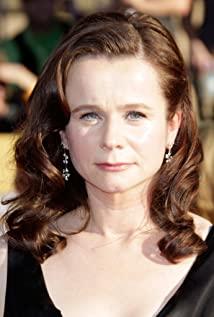- The first season of National Geographic Channel's "Genius" based on Walter Isaacson's "Einstein Biography" tells the story of the great physicist Albert Einstein's life from his youth to his death. At the beginning of the play, the two main lines of youth and old age are intertwined, and the academic and political plots are interspersed, supplemented by the Roentgen, Curie and other sub-lines to promote the development of the plot, and finally merged into the thread before and after World War II, centered on the elderly Einstein. Fortunately, the play did not use the Spring and Autumn brushwork, which is reflected in Einstein's character image and the shaping of the political and academic environment in the United States at that time:
- As a great physicist and a pacifist, Einstein is worthy of the name. He devoted his life to revealing the secrets of the universe and shouting for the well-being of all mankind. Einstein was moved to speak out during the most severe persecution) and the government, he tried his best to break these cages and tried to become a truly pure person. In the face of authority, whether in the political or academic circles, he obeyed his heart and refused several times. We can also find such a beautiful personality in other geniuses. Bertrand Russell, the British philosopher who is also a liberal and pacifist, can be very good in the three passions described in his article "Why I Live". These emotions are summed up succinctly: "Three simple but extremely strong passions have dominated my life, the thirst for love, the quest for knowledge, and the piercing pity for human suffering. These passions stretch me like a gust of wind. Throwing here and there into a deep sea of bitterness on the brink of despair has left my life without direction."
- When it comes to love, Einstein must be a good lover, but not a good husband, let alone a good father. As Einstein's eldest son Hans said in this play: You are good to everyone, but your family is deeply hurt. The beginning of the episode is very fragrant. The old Einstein flirts with the young and beautiful female secretary Betty. At this time, he has a legal marriage relationship with his cousin Aisha. He said to Betty: "Come and live with me, I love my wife very much, but monogamy is not common sense, it's just a concept under religious rule, my dear Betty, foolish belief in authority is the number one truth The enemy", but when Elsa couldn't bear the showdown with him, he shied away and said that it was a play with Betty and a little respite under the huge pressure. And Einstein's union with Elsa was the result of hurting his first wife Mileva. It seems certain that if Mileva was not so moved by Einstein's stalking that she was willing to hide behind Einstein and give everything to him, she would also be a great scientist in history. leave your name. However, all these sacrifices were rewarded with disrespect and even humiliation from Einstein. In fact, from the way Einstein fell in love with Mileva and treated his first love, it can be seen that Einstein was a scumbag: not taking the initiative, not rejecting, and not being responsible.
- Einstein's challenge to academic and political traditions was particularly hated against the background of his Jewish identity, not only in Germany at the time, but even in the United States, which was the most liberal at the time. In the display of the plot, the United States at that time was by no means a veritable free country. Nationalism and statism were still the two hands that choked the neck of free thought, speech and independent personality. Even Einstein was already famous. Still devastated by it.
- The biggest stain in Einstein's life may be his emotional history, and I have no intention to justify him here because of worship. When he accompanies Elsa to the end of her life, the preface to Tolstoy's "War and Peace" that he reads seems to have shown that he is a child full of love but wayward: The whole world is now for me divided into two halves: one half is she, and there all is joy, hope, light: the other half is everything where she is not, and there is all gloom and darkness...Loveis life. Everythingis, everything exists, only because Ilove.. .
- Einstein finally got the forgiveness of his family, left with love for the world, for mankind, everything was forgiven, everything was reconciled, youthful and cynical from youth to old age, turned into death at the end of his life. A flower that is handed to a lover and a grudge for a smile. The play ends with a conversation between the old Einstein and the little girl. Einstein attributes his achievements to his strong curiosity. He smiled and watched the little girl who was curious about everything in the world go away. I believe that Einstein's understanding of the universe , The love and curiosity for human beings will be passed on forever with the development of human civilization.
View more about Genius reviews











